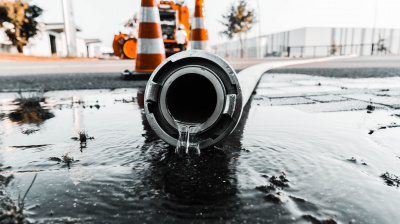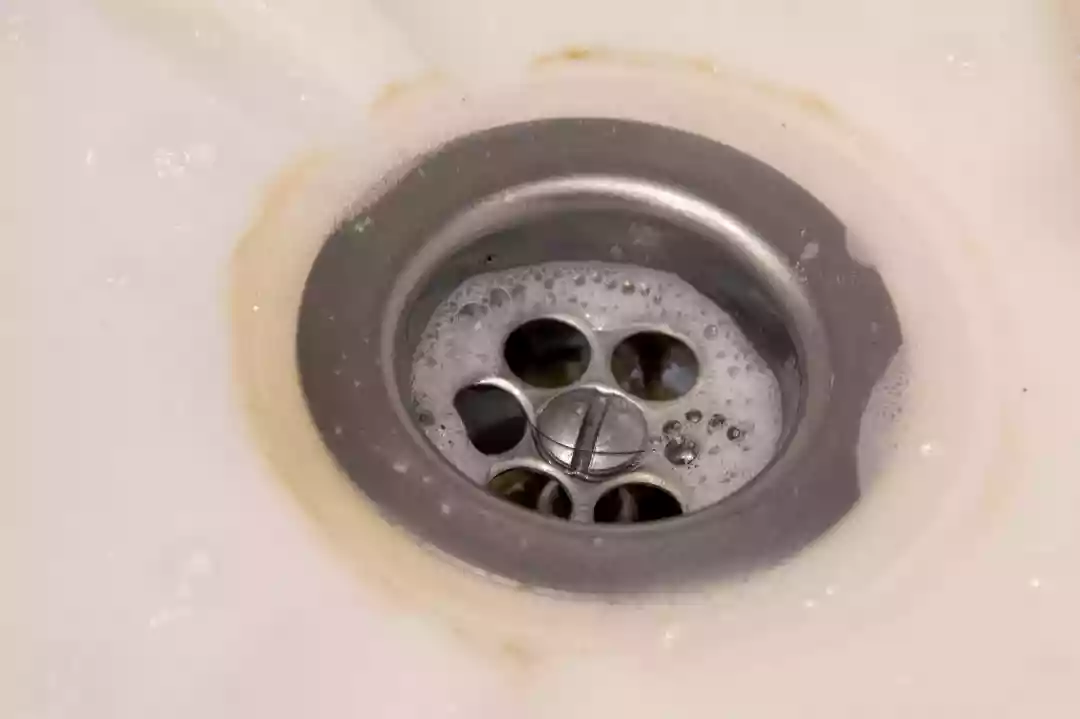Can Sewer Gas Make You Sick?
You might be wondering if exposure to sewage gas might make you ill if clogged drains are causing a build-up of the gas. Yes, sewage gas emissions can cause significant sickness. Sewer gas is a build-up of potentially harmful gases such as ammonia, hydrogen sulphide, methane and carbon monoxide. Your symptoms may differ depending on how much sewage gas you are exposed to. Most individuals may only have milder symptoms, but some people may experience more severe symptoms, including collapsing and having trouble breathing. In this situation, you ought to contact emergency services right away. The residence should be evacuated and a professional called to undertake a drain inspection and assess the issue as soon as possible if medical or plumbing professionals suspect sewage gas exposure. Exposure to these gases, even for a brief period, can result in symptoms including headaches, nausea, irritation of the eyes and throat, disorientation, and even death. Long-term exposure to these gases can also cause lung cancer, liver and kidney disorders, neurological impairment, and other health issues. As a result, it's critical to repair clogged drains and sewage gas exposure at once.
Ammonia
One of the most frequently manufactured compounds is ammonia. It is referred to as anhydrous ammonia when it is pure. The human body also produces ammonia, which is frequently found in nature. Ammonia is necessary to the body because it serves as a building component for proteins and other complex compounds. Ammonia is naturally created in soil by bacterial activities, as well as when plants, animals, and animal faeces decompose. Sewage gases usually include significant concentrations of ammonia. Even at low doses, it can irritate the eyes, nose, mouth, and throat. Ammonia gas will ascend since it's lighter than air and won't settle in low-lying locations. Ammonia may, however, produce heavier than air vapours when there is moisture present. Ammonia enters the body by inhaling, ingesting, or contact with the skin, where it interacts with water to form ammonium hydroxide. This substance is extremely corrosive and harms bodily cells upon touch. Additionally, it might result in serious respiratory and cardiovascular symptoms such as coughing, difficulty breathing, chest pain, and even collapse. Additionally, chronic inhalation of dangerous levels of ammonia can cause damage to the kidneys, heart, and lungs. To reduce the risk of exposure, householders should first find and fix the problem's underlying source, such as a clogged drain, and then ventilate the area using fans.

Need assistance finding drainage clearance near you?
Get a QuoteHydrogen Sulphide
Since it's frequently created by the decomposition of waste, hydrogen sulphide gas is commonly referred to as "sewer gas". Hydrogen sulphide gas has a strong smell at low concentrations that is comparable to rotten eggs. It is possible to smell hydrogen sulphide gas at concentrations below those that might have negative consequences on your health, thus it is not necessarily a guarantee that you will become unwell. However, in larger concentrations, the gas may overpower your nose, preventing you from smelling it. Hydrogen sulphide gas can be lethal or sickening at greater concentrations. Hydrogen sulphide is another prevalent component of sewage gas and is highly dangerous for persons who already have respiratory issues. The gas can cause headaches, nausea, and dizziness as well as irritate the eyes and mucous membranes, cause bronchospasm, make breathing challenging, and cause other symptoms. Long-term exposure to hydrogen sulphide gas can have negative consequences on the body, such as fatigue, memory loss, and nerve damage. It's important to get medical help as soon as these symptoms appear. To determine the source of the sewage gas, you need also to consult a licenced plumber. Hydrogen sulphide can impair your sense of smell. Therefore, just because you can't smell rotten eggs any more, doesn't mean that you aren't still breathing in the gas.
Methane
Another dangerous gas that can have a negative impact on health is methane, which is prevalent in sewage gases. Sewer gas contains a variety of poisonous and non-toxic gases, such as hydrogen sulphide, carbon dioxide, ammonia, nitrogen oxides, and sulphur dioxide, although methane is the main component. Sewer gas emissions might also be caused by improperly disposed of petrol and mineral spirits. The effects of oxygen deficit include headache, nausea, dizziness, and unconsciousness; when sewage gases penetrate into indoor air, they progressively displace oxygen and suffocate people. Less than 12% oxygen concentrations will swiftly and abruptly cause unconsciousness and death. The basement, which is where significant sewage gases, primarily methane, are likely to gather, will have the lowest oxygen concentrations. Methane can irritate the eyes and throat and, under severe circumstances, cause unconsciousness and even death. If there is a build-up of methane, it is crucial to call a plumber and leave the area to avoid any health dangers.
Carbon Monoxide
One of the most common causes of unintentional poisoning deaths is carbon monoxide. This gas is highly hazardous and challenging to recognise because it has no taste or smell. It is hazardous to the human body and is mostly made of hydrogen, oxygen, and carbon. Any living thing that employs haemoglobin as an oxygen carrier, such as people and animals, can be poisoned by carbon monoxide. Carbon monoxide starts to accumulate in your blood when it is inhaled in large amounts by your body. At this point, carbon monoxide will begin to displace your oxygen, which will result in carbon monoxide poisoning. Different symptoms might manifest depending on how much carbon monoxide you have been exposed to. Due to its flu-like symptoms, mild carbon monoxide poisoning is frequently misdiagnosed and ignored. Carbon monoxide exposure at high concentrations can result in fainting, disorientation, migraines, heart palpitations, and even death. Get medical help right once if you have any of these symptoms, and then call a licenced plumber to unclog any blocked drains that could be the source of the gas. Blocked drains can expose people to harmful sewage gas. If exposed for an extended period of time, several gases, including ammonia, hydrogen sulphide, methane, and carbon monoxide, can have detrimental effects on human health. It's critical to get in touch with a professional if you feel that sewage gases have accumulated in your house.
In this article:
